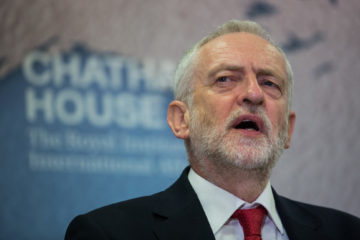A long and arduous election campaign concludes this Friday in Uganda, where third-time challenger Kizza Besigye bids to topple Yoweri Museveni, whose National Resistance Movement (NRM) looks set to maintain its impressive majority in the Parliament. A peaceful transfer of power would be the first in the nation’s history, and the international community has not been short of consternation over the incumbent’s supposedly heavy-handed repressive tactics. Political violence and attempts to muzzle activists would seem to demonstrate a regime on the road to tyranny. The opposition has all but abandoned the official process, conducting its own count and threatening an Egypt-style revolution. Is this really the only option? The reality is slightly more complex.
At first glance, a farce at the polls seems inevitable. This is only the second election in which opposition parties have been legal, with Besigye having spent the first behind bars. Last June, the mysterious and violent Kiboko Squad began attacking opposition rallies. This was followed by the gun-toting shambles that was the NRM district elections. However, the current situation is nowhere near as violent as might have been predicted. It is likely that the government has finally realised how much of a gift this kind of behaviour is to the opposition. Besigye has already capitalised on it in the Western and Ugandan press, branding Museveni a “dictator”, and threatening to “resort to the court of public opinion” should the latter win. This kind of talk can frighten off donors. The violence we now see is therefore highly decentralised, described by its perpetrators as “voluntary work”. Thus the Kiboko Squad, which has been disowned by every major political actor.
Opposition parties should therefore see the next few days as a good opportunity to increase their power in the legislature, and perhaps even to force a run-off vote. Uganda’s largest tribe, the Baganda, suspect the government of conspiring against their Kabaka (king), while economic neglect has disenfranchised many Basoga in the East. True, few Ugandans are expecting change. The FDC may be in trouble in its Northern heartland, which will reward the government for expelling the LRA and establishing peace. The army is also an issue – many people have yet to be convinced that Besigye has the power to command it. But to respond by bypassing the institutions of the state is highly irresponsible. Instability is still a possibility, and even aside from the bloodshed it would bring, it is difficult to see what either party could gain from it.
To get caught up in debates about the brutality of the state is therefore a dead end for the FDC. But more importantly, it obscures the real weakness of Museveni’s approach. This is to purchase victory at any price, with the taxpayer footing the bill. The vulgar tactic of handing out ‘brown envelopes’ must be cast as the national catastrophe that it is. Public spending in January accounted for 44% of the 2010/2011 budget – it is not known how much of this has gone directly towards the NRM campaign. Inflation had recently been brought under control from a high of 14%, but many of its underlying pressures remain, and this policy will exacerbate matters. Any incoming government will be forced to halt social schemes and borrow on hostile bond markets, in the face of contractionary monetary policy from the Bank of Uganda. These ingredients have the potential to wreck GDP growth for at least a year.
Of course, it will be impossible to communicate the issue in these terms. But it is the job of politicians to translate these facts into a language which their constituents can understand. In this case, the issue must be conceived as one of corruption, a vice which Ugandans perceive in their government more than any other nation in the world. To highlight this aspect of the regime, not its rather half-hearted use of repressive violence, will enable the opposition to regain sympathy amongst its constituents and the international community.


